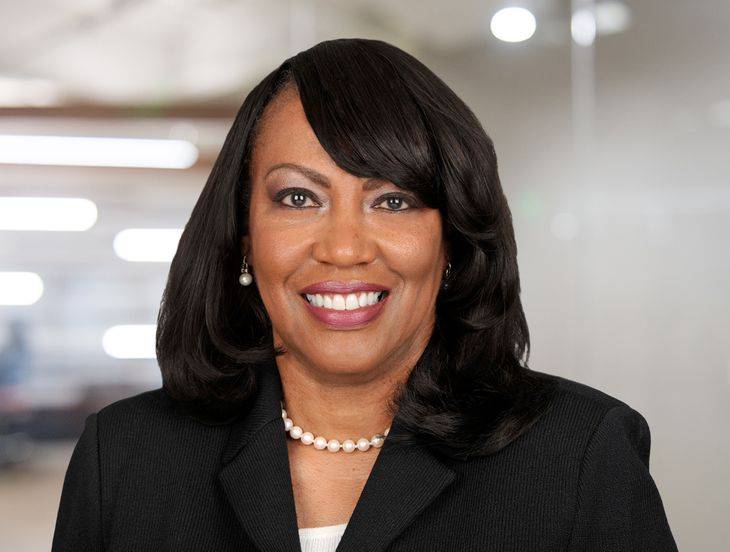Growing Attacks on Corporate DEI Programs: 5 Employer Takeaways to Help Support Your Diversity, Equity, and Inclusion Efforts
Insights
10.17.24
Diversity, equity, and inclusion programs are facing scrutiny across the country, causing some employers to scale down their DEI initiatives or drop them altogether. As companies face pressure and increasing legal challenges, you may wonder how to approach workplace inclusivity – or if you should do so at all. But despite the current climate, DEI programs have clear benefits for businesses and their workforces, and many reports show that most corporate leaders plan to continue or even grow their DEI efforts. We’ll explain how these programs are being challenged and give you five takeaways for maintaining an effective and legal DEI program.
What’s Going On?
A growing number of large U.S. companies have announced cuts to their existing DEI efforts in response to public backlash and a new wave of lawsuits claiming that corporate DEI programs are discriminatory and can create a hostile work environment. For example, Lowe’s decided in August to pare down its DEI policies by combining its resource groups and ceasing to participate in or sponsor various measures and events for the benefit of workplace inclusion for LGBTQ+ employees. The home improvement chain joins a number of other employers that have publicly distanced themselves from DEI initiatives.
How Did We Get Here?
Two Supreme Court rulings may have helped pave the way for challenges to DEI initiatives from organizations dedicated to “ending racial preferences.”
- Restricted Affirmative Action in Education Admissions. Last year, the Supreme Court severely limited affirmative action in education admissions by holding that a university may consider race during the admissions process only if it is directly tied to a specific applicant and their quality of character or unique ability to contribute to the school. We covered how that decision could cause ripple effects on the world of workplace law and how it specifically impacted workplace DEI programs.
- Lower Standard of Harm in Title VII Claims. In April, the Court held that an employee who claims a mandatory job transfer is unlawfully biased must show they suffered some harm – but the harm does not have to be “significant” – regarding a term or condition of employment because of the transfer. By some predictions, the reasoning in that case potentially could be used to regulate an employer’s DEI initiatives under the same lowered bar.
What’s the Latest?
Federal courts across the country have ruled on various DEI efforts and workplace “reverse discrimination” cases this year. These decisions highlight the increasing amount of legal backlash over DEI programs, how different courts approach these claims, and the factual nuances that could make or break a case. Here are three of the most high-profile cases to help you understand the current state of things.
Grant Contest for Black Women Shut Down After Lawsuit Claiming Racial Discrimination
A venture capital firm ended its grant contest for Black women business owners as part of settlement agreement it entered last month to resolve claims that the contest unlawfully excluded white and Asian-American women. Not familiar? Get caught up here:
- The Fearless Fund operated the Fearless Strivers Grant Contest, which awarded each of its four winners $20,000 plus other benefits such as digital tools and mentorship. The grant contest was open only to businesses owned by Black women.
- The American Alliance for Equal Rights – an organization “dedicated to challenging distinctions made on the basis of race and ethnicity in federal and state courts” according to its website – sued the Fearless Fund last year, claiming it committed racial discrimination under 42 U.S.C. Section 1981, a federal law that prohibits private parties from discriminating based on race when making or enforcing contracts.
- The 11th U.S. Circuit Court of Appeals issued a split decision on June 3 granting the Alliance’s request to block the contest. Specifically, the court held that the program likely violates Section 1981 and is unlikely to enjoy First Amendment protection, and blocked the Fearless Fund from closing the contest’s application process while the lawsuit plays out.
- Both parties agreed in September to dismiss the case. As part of the settlement, the Fearless Fund agreed to permanently shut down the grant contest. While a civil rights attorney who represented the Fearless Fund called the settlement a “victory” for “strategically avoiding a Supreme Court ruling that could have eliminated race-based funding,” the Alliance celebrated the end of the Fearless Fund’s “race-exclusive” program.
White Man Wins Discrimination Case Against Employer in North Carolina
In a case against a health system, the 4th U.S. Circuit Court of Appeals agreed that an employer should be held liable for unlawful discrimination against a former executive – a white man who claimed the health system fired him because of his sex and race. The former executive had been abruptly terminated despite an excellent record of performance and replaced by a Black woman amidst the company’s widescale diversity and inclusion initiative, which had an express goal of “adding dimensions of diversity to the executive and senior leadership teams.”
While the appeals court also agreed with the lower court’s award of back pay and front pay, it set aside the jury’s award of $10 million in punitive damages, reducing those damages to $300K.
Hostile Work Environment Claim Fails in Colorado, But Court Says DEI Program “Troubling”
A recent case involved a white man who claimed that his former employer, the Colorado Department of Corrections, subjected him to a hostile work environment by implementing a mandatory DEI training. Specifically, he claimed the training “demeaned him of his race and promoted divisive racial and political theories that would harm his interaction with other corrections’ personnel and inmates.”
The 10th U.S. Circuit Court of Appeals agreed with a lower court that dismissed the case. The court held that the former employee’s allegations were too speculative “at this time” to survive the employer’s motion to dismiss. However, the court noted that the employer’s race-based training program was “troubling on many levels” and that such programs can create hostile work environments and set the stage for actionable misconduct by the organizations employing them “when official policy is combined with ongoing stereotyping and explicit or implicit expectations of discriminatory treatment.”
SCOTUS to Decide Proper Standard for Majority Group Plaintiffs Alleging Discrimination
The Supreme Court recently agreed to hear a reverse discrimination case that will resolve a disagreement among federal appeals courts regarding whether a majority-group plaintiff must show, in addition to the other elements of a Title VII claim, "background circumstances to support the suspicion that the defendant is that unusual employer who discriminates against the majority." We will track developments in Ames v. Ohio Department of Youth Services as they unfold, so stay tuned for updates.
5 Employer Takeaways
Despite the attacks on some aspects of corporate DEI programs, it is generally lawful for employers to address biases and barriers to provide a level playing field for employees and job candidates. Further, countless studies have shown the value of diversity in the workplace — higher performing teams, better bottom lines, and stronger leadership. While you may need to ramp up your efforts to ensure your program is compliant, the balance of competing interests likely justifies the continuation of effective, legal DEI programs. An effective DEI agenda requires intentionality and patience. Here are five important employer takeaways:
1. Focus on Inclusivity
Your DEI program should highlight the benefits of inclusion and diversity in the workplace and how these initiatives serve as a tool for achieving your business objectives. Initiatives aimed at making workplaces more inclusive — such as employee resource groups or educational campaigns — can be impactful in this arena.
2. Carefully Consider Language of Goals Based on Protected Characteristics
Quotas have always been unlawful for private employers under Title VII and DEI programs should not replace merit-based selection processes. While DEI programs can be mistaken as developing quotas, they should not be seen as such if executed properly. Part of proper execution includes ensuring that program objectives are carefully messaged in light of recent case law developments.
3. Don’t Make Assumptions
Your DEI program should not include assumptions about groups of people (such as assumptions based on race or sex) or repeatedly offer stereotypes. For example, in the 10th Circuit case mentioned above, the court frowned upon training that allegedly critiqued a “fakequity” belief that “white allies” are “an exception to white racism” that “perpetuates white supremacy.” The court said, “If not already at the destination, this type of race-based rhetoric is well on the way to arriving at objectively and subjectively harassing messaging.” You should also consider gathering information from your employees about their perceptions and experiences related to DEI in your workplace and training your employees on fact-based decision techniques to avoid making decisions based on faulty assumptions and biases.
4. Don’t Limit Participation Eligibility Based on Protected Characteristics
Employee resource groups and workplace mentoring programs that promote career development should be open to all employees regardless of race or other protected characteristics. These programs should be open to all employees and the focus should be on the outcomes you wish to achieve such as greater employee engagement and developmental experiences for your future leaders.
5. Be Proactive and Stay Vigilant
Review all the elements of your DEI program to ensure that they meet the legal requirements – as well as the business imperatives that warrant the continued operation of your initiatives – and conduct routine internal compliance checks to identify problem areas. You should also ensure that your DEI communications are accurate and consistent to minimize possible lawsuits. Work with counsel to monitor future legal developments, assist with revising policies as needed, and ensure your DEI objectives and employee education efforts are appropriate.
Conclusion
The legal landscape for DEI programs remains dynamic and will likely see additional challenges in the future. However, programs operating in compliance with state and federal laws remain important business tools to support employee engagement and long-term business success.
If you have questions regarding best practices for developing, implementing, or maintaining a compliant DEI program, please reach out to your Fisher Phillips attorney or the authors of this Insight. Make sure you are subscribed to Fisher Phillips’ Insight System to get the most up-to-date information on this and other employment topics directly to your inbox.
Related People
-
- Sheila M. Abron
- Partner
-
- Raymond W. Perez
- Of Counsel
-
- Regina A. Petty
- Partner and Chief Diversity Officer
-
- Terri R. Stewart
- Regional Managing Partner



